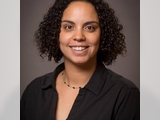GESTAR II Seminar Series, February 27th at 1:00pm
Join us for a virtual seminar by Dr. Karin Ardon-Dryer, Department of Geosciences, Atmospheric Science Group, Texas Tech University. Her talk is titled "Dust in the air, a bigger problem than we think!"
Date and Time: Tuesday, February 27, 2024 at 1:00pm
Join us via Teams.
Abstract:
"Dust events are a weather phenomenon common in many locations worldwide, they occur when strong winds pick up dust particles increase their concentration in the air reduce visibility, and impact Earth's climate, the environment, air quality, well-being, and human health. Multiple studies indicate that the number of dust events has increased across the United States and climate models project that trend to continue.
Dust events across the US can be of varying intensities (blowing dust vs. dust storm) and types (synoptic vs. convective), but their distributions (spatial, temporal, or type) and impacts across the US are unclear. Therefore, there is a need to better understand their spatial and temporal distributions, the meteorological conditions that initiate them, and those measured during them. A new dust database, under development, will help answer these unknowns. This new dust database identifies dust events based on ground meteorological stations spread across the US, and confirmation each using different tools (including changes in PM, satellite images, IMPROVE, AERONET, etc.).
Although dust events are common across many regions of the U.S., their impacts are not often prioritized in air quality mitigation strategies. Different factors result in dust receiving less attention, and these factors limit our understanding of the impacts of dust events on its many social and environmental impacts, including its impact on air quality and human health. These limitations will be covered and an understanding of the impact these dust particles have on air quality and human health will be presented."
Biography:
Karin Ardon-Dryer, Ph.D., is an Assistant Professor in the Department of Geosciences at the Atmospheric Science Group at Texas Tech University. Before joining TTU she was a Postdoctoral Associate in the Department of Earth, Atmosphere, and Planetary Sciences (EAPS) at the Massachusetts Institute of Technology (MIT); and later a Postdoctoral Fellow in the Department of System Biology at Harvard Medical School at Harvard University. Dr. Ardon-Dryer received her Ph.D. in Atmospheric Science from the Department of Geophysics, Atmospheric and Planetary Science, and the Porter School of Environmental Studies at Tel Aviv University in Israel. She received her master's in the Department of Geography and Environmental Development at Ben Gurion University with a focus on Geomorphology and Remote Sensing.
Dr. Ardon-Dryer studies the effect that aerosols (mainly dust particles) have on climate, the environment, and our health. In particular, she takes an interdisciplinary approach and combines field and laboratory work to investigate the interaction between humans and climate; exploring the human effects on climate, and vice versa, namely, how climate may affect our lives (e.g. health) in the short and long term. She is also running the measurement station AEROS (Aerosol Observation Station) which helps to study the characteristics of atmospheric particles during dust events, to understand the different meteorological conditions that generate dust events and their impact on air quality and climate. She also investigates the effects that aerosol particles have on human health, using an interdisciplinary approach, she developed, that observes the effect of air pollution particles on health at a single-cell level.
Dr. Ardon-Dryer is a PI on several NSF grants, a Co-PI on a NASA grant, and the lead scientist on an EPA community organization grant. She is also the director of the U.S. She Space International project which is an international project with 10 different countries from around the world, focusing on introducing 14-16 high school girls to STEM via remote sensing.
For more information on the GESTAR II Seminar Series, click here.
Tags:
Posted: February 22, 2024, 11:14 AM
